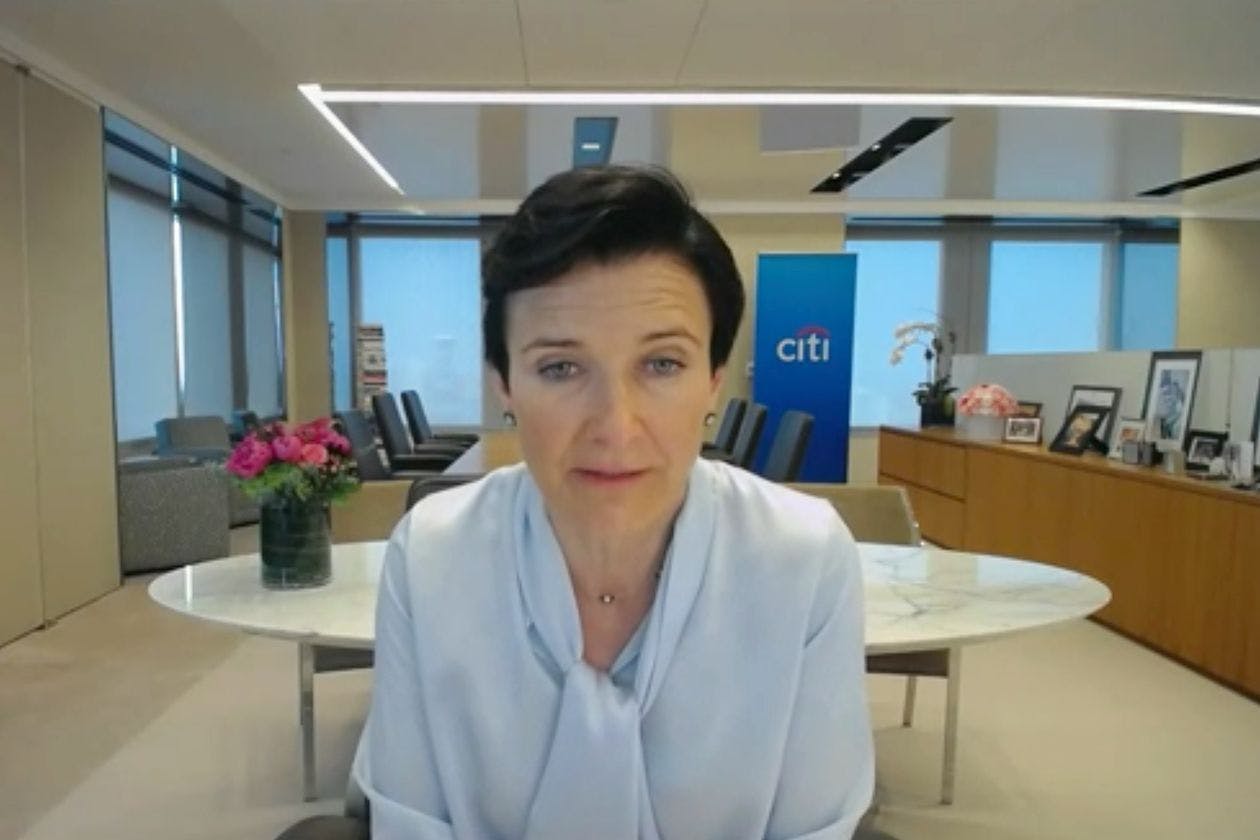Wall Street CEOs Face Heat for Pandemic Response, Climate Change
Citigroup’s Jane Fraser, JPMorgan’s Jamie Dimon, Morgan Stanley’s James Gorman, Wells Fargo’s Charles Scharf, Bank of America’s Brian Moynihan and Goldman Sachs’ David appeared before the committee for the first time since the start of the pandemic.

Citigroup CEO Jane Fraser addressed lawmakers during a virtual hearing; Source: U.S. SENATE COMMITTEE ON BANKING, HOUSING AND URBAN AFFAIRS
- Wall Street’s biggest banks were grilled by lawmakers over lending practices, climate change, economic inequality and social justice Wednesday
- Wednesday marked the first time the CEOs have testified before the committee since the 2008 financial crisis
The leaders of Wall Street’s biggest banks were grilled by lawmakers over lending practices, climate change, economic inequality and social justice Wednesday during the first day of testimony to the Senate Banking Committee.
Citigroup’s Jane Fraser, JPMorgan’s Jamie Dimon, Morgan Stanley’s James Gorman, Wells Fargo’s Charles Scharf, Bank of America’s Brian Moynihan and Goldman Sachs’ David appeared before the committee for the first time since the start of the pandemic.
Wednesday marked the first time the CEOs have testified before the committee since the 2008 financial crisis. Senator Sherrod Brown (D., Ohio), a known Wall Street critic, took over as committee chairman following the democratic victory in 2020.
Not sharing the wealth
“Under the current system, Wall Street profits no matter what happens to workers, because those profits now come at the expense of workers,” he told the CEOs in his opening remarks during the virtual hearing. “Profits have gone up, stock prices have soared, your own compensation is stratospheric — but workers get a smaller and smaller share of the wealth they create…and they’re working harder than ever,”
CEOs also faced tough questions over lending practices as lawmakers pointed to evidence that some borrowers were discriminated against during the pandemic. Sen. Elizabeth Warren (D., Mass.) was specifically critical of Dimon and the excessive overdraft fees charged in 2020, even as lawmakers allowed for penalties to be waived.
Warren said that JPMorgan made seven times more per account than competitors with almost $1.5 billion from overdrafts last year. Dimon responded by calling this figure “totally inaccurate.” Warren claimed that banks collectively brought in $4 billion in overdraft fees.
“You and your colleagues come in today to talk about how you stepped up and took care of customers during the pandemic, and it’s a bunch of baloney,” said Warren.
The CEOs collectively claimed that banks have played an essential role in the economic recovery, pointing to the almost $796 billion in loans through the federal Paycheck Protection Program they helped distribute.
“Banks were a part of the solution to beat back the economic impacts of a global pandemic, and now we must continue to work together to ensure a fair and equitable recovery,” Scharf said in prepared remarks.
Limiting customer lending
Even as big banks helped with PPP loans, they limited lending to current customers and former borrowers. Lending restrictions were tightened in response to the pandemic and resulting economic downturn.
While Democrats asked bank executives about lending discrimination, Republicans questioned banks’ decisions to cut lending to politically unpopular businesses, including gun manufactures and oil companies.
“I am concerned about increasing pressure on banks to embrace ‘wokeism’ and appease the far Left’s attacks on capitalism,” said Senator Patrick Toomey (R., Penn.).
CEOs denied any claims that political pressures influence lending decisions and pledged to take action to help address racial disparities within the housing market.






